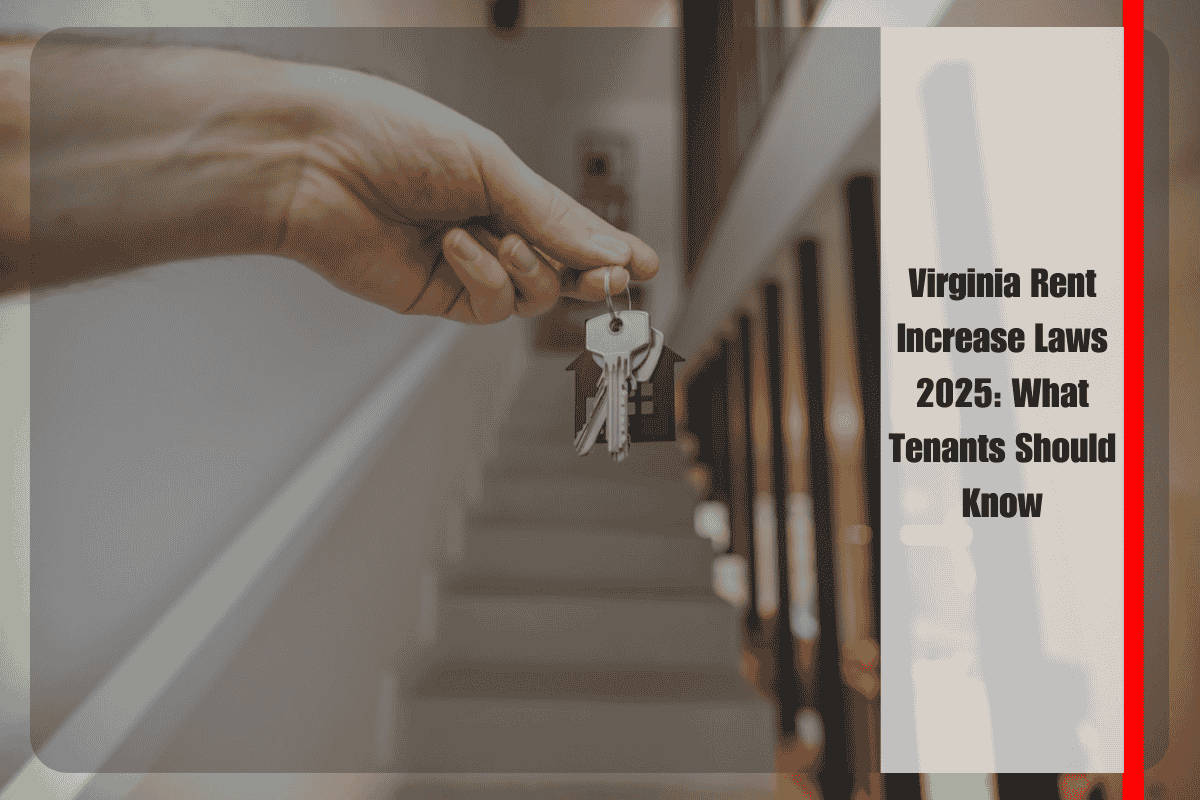As Virginia enters 2025, tenants across the state must be aware of the rules surrounding rent increases. Rent hikes can be a stressful experience for renters, and understanding your rights is essential to navigate these changes. Here’s everything you need to know about rent increase laws in Virginia for 2025.
In Virginia, there are no statewide rent control laws, meaning landlords generally have the freedom to raise rent as much as they choose. However, there are still regulations in place that landlords must follow. Tenants need to be aware of these regulations to ensure that any rent increase is in accordance with the law.
The first important factor to understand is the required notice period for rent increases. If you have a lease that lasts a year or longer, landlords are required to give at least 60 days’ written notice before the new rent is due. For leases of less than one year, the notice must be given at least 30 days in advance. This written notice must clearly state the new rent amount and the date the increase will take effect.
Another key point is the frequency of rent increases. While Virginia doesn’t set a cap on how often rent can be increased, the lease agreement may specify the terms under which rent increases can occur. For tenants with a month-to-month lease, landlords can raise the rent at any time, provided they give the appropriate notice. However, in fixed-term leases, rent increases typically occur only at the end of the lease term unless the agreement states otherwise.
Virginia’s rent increase laws also prohibit discrimination. Rent increases cannot be based on discriminatory factors, such as race, religion, gender, or disability. If a tenant feels that a rent increase is discriminatory, they have the right to challenge it legally. It’s important to remember that while bedbugs, poor maintenance, or other issues might seem like a reason to raise the rent, these cannot be used to discriminate against tenants in protected classes.
Additionally, tenants living in government-subsidized housing or receiving housing assistance may face different rules regarding rent increases. Rent increases in these cases are generally regulated by the government and are based on the tenant’s income and the housing program guidelines.
If you receive a rent increase notice, you have several options. You can negotiate with your landlord if the increase seems too high. You can also ask if the landlord is willing to freeze the rent or offer rent assistance programs to help. If negotiation doesn’t work, and you’re not bound by a lease term, you can decide to move out at the end of the lease. However, if you believe the rent increase is unlawful, seeking legal counsel can help you determine your next steps.
Rent increases can be a headache for tenants, but knowing your rights and understanding Virginia’s rent increase laws can help you manage the process. While landlords have some flexibility in raising rent, they must follow procedures and provide the required notice. If you find yourself facing a rent increase that feels unfair or discriminatory, you have options to negotiate or take legal action.
Sources
[1] https://www.doorloop.com/laws/virginia-rent-control-laws
[2] https://www.hemlane.com/resources/virginia-rent-control-laws/
[3] https://www.steadily.com/blog/how-much-can-a-landlord-raise-rent-in-virginia
[4] https://www.dhcd.virginia.gov/sites/default/files/Docx/landlord-tenant/final-vrlta-statement-formatted.pdf
[5] https://www.dhcd.virginia.gov/sites/default/files/Docx/landlord-tenant/landlord-tenant-handbook-final.pdf












